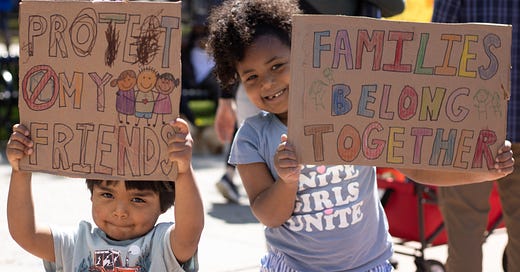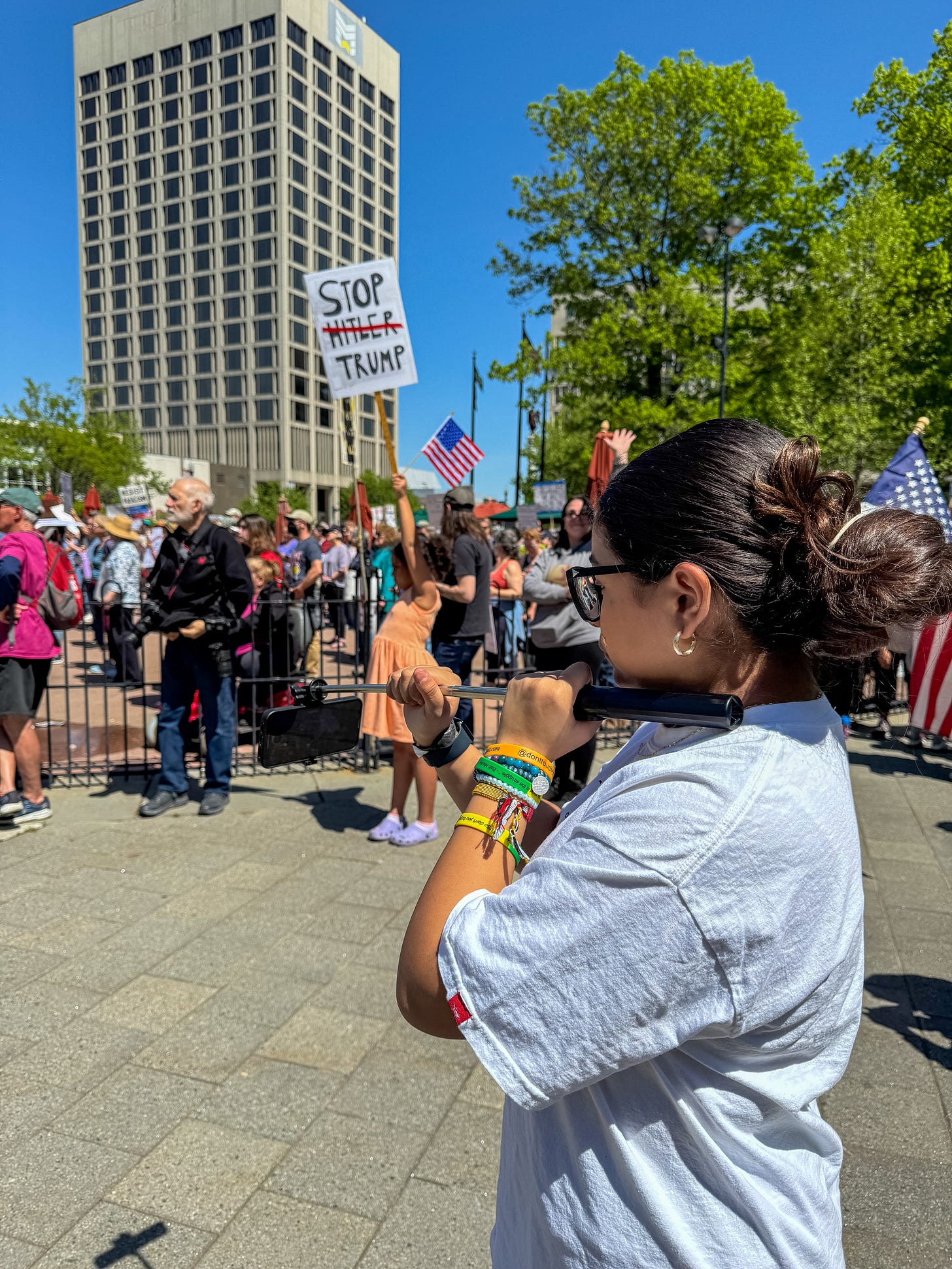How We Raise Civically Engaged Youth in the Face of Injustice
A personal perspective on why it’s important to civically engage children
Photo of children attending a “Hands Off Worcester Mothers” rally
After publishing my last article on ICE Activity Without Judicial Warrants Raises Alarm in Our Communities, and posting about attending a rally with my family, I received messages that echoed the same sentiment: “This is no place for children.”
I want to be very clear: this is exactly where children belong.
Too often, conversations about immigration enforcement, racial injustice, and systemic oppression are labeled “too adult” for young people. But here’s the truth: our children are already living through these realities. The trauma of separation, the fear of law enforcement, the weight of watching their communities targeted because these are not abstract ideas. They are lived experiences for many Latino, immigrant, and working-class families.
To say this work is “no place for children” is to misunderstand how civic education happens and who it is intended for. Civic engagement isn’t something we turn on at age 18, like a switch. It’s cultivated from the moment a child asks a question about fairness, justice, or belonging. When we bring our kids to community meetings, protests, or local hearings, we aren’t corrupting their innocence. We are nurturing their awareness. We are giving them the tools they’ll need not only to survive in this world but to reshape it.
We know that shielding children from injustice is a privilege not all families can afford. Some of us don’t have the choice to “wait until they’re older.” Many of our kids have watched family members detained, have had their schools infiltrated by immigration enforcement, or have had to interpret for their parents during legal or medical emergencies. Their civic education has already begun and not because we forced it, but because the system did.
What we can do is provide the context, language, and empowerment to help them understand what they’re witnessing. We can tell them the truth in ways they can hold. We can show them how to ask questions and how to organize. We can introduce them to their local representatives, teach them about community power, and remind them of their strength.
When my children join me at advocacy events, I’m not just teaching them about laws and systems. I’m teaching them about love. About responsibility. About how we use our voices to protect those we care about, especially when it’s uncomfortable. And in turn, they teach me about the things that matter to them; the questions they have about the world; and the solutions they feel they can create in their own, limited capacity.
And I know I’m not alone.
My middle daughter today, documenting the happenings of the rally.
Across Massachusetts, I’ve seen entire families attend community forums together. I’ve seen teenagers testify about how school resource officers make them feel unsafe. I’ve seen elementary-aged kids hand out flyers for sanctuary city campaigns, chanting “no justice, no peace” with more clarity and conviction than some adults.
This is what civic education should look like: intergenerational, community-rooted, and grounded in lived experience. It’s time to redefine what we consider “appropriate” for young people. The truth is, they are already watching. Already absorbing. Already forming opinions and asking, what kind of world are we building and do I belong in it?
Our job is not to shelter them from the truth.
Our job is to walk beside them through it. To answer their questions honestly. To model courage. To show them how to move from awareness to action.
Because if we wait until adulthood to start those conversations, we’ve waited too long.
We must raise children that understand the power of their story. Who knows their rights — and the rights of their neighbors — are worth defending. Who grow up to be adults filled with empathy and logic while embodying a moral compass that cannot be found anywhere else.
So yes — to everyone who thinks this work is “no place for children”: I disagree. This is the exact place they belong.
And I’ll keep bringing them with me.
I’d love to hear from you…






As a child I wrote letters for my grandparents, parents and other relatives who didn’t have the opportunity to attend school. As I got older I became translator/ interpreter in chief, imagine explaining why mom has a black and swollen eye at an ER circa age 13. Don’t anyone dare tell me what is right or wrong for my children and their families. Lived experience has taught many people times over what it takes to stand up for others. This country needs parents to get children off of their games and teach them to be citizens of the world
I love seeing my Beautiful grand babies involved with what’s happening in this awful ugliness world that we’re living in now. It is important to me for them to know what is happening so they can be prepared to take action against predators who are out there hurting innocents children and families I have always had spoken to my babies about how not to trust anyone and how to protect themselves against anything that comes their way. Peace and Love